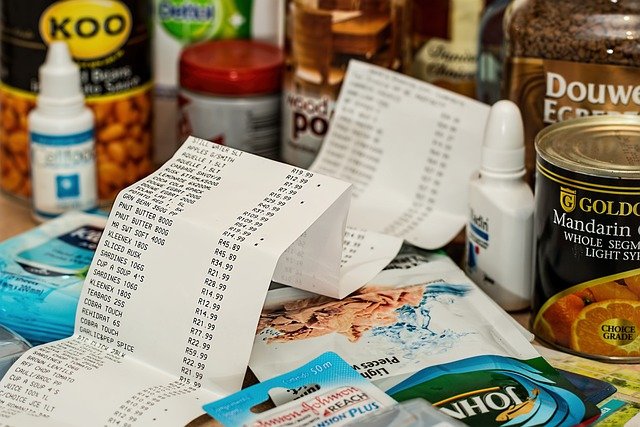By Hunter Thurman & Bethany Merillat MEd, MS Psychology
C-suites of consumer product companies everywhere are pondering what many perceive as an inevitable “consumer trade down” based on inflationary pricing pressure. Among most business leaders, this amounts to pondering at what point consumers will elect to switch from ‘premium’ brands to store brands / private label.
But neuroscience reveals this is the wrong question to be asking. Consumer data is showing that – even for lower-income households – mere pricing considerations do not solely underlie shopper choice and behavior.
And while this sounds counter-intuitive, it’s actually central to human experience, and our natural response to threats and stress. When confronted with “something bad,” most people can relate to the strong negative emotion that immediately results (rather than rushing to open a spreadsheet and calculate the fiscal implications, for instance).
This is easy to imagine in your own life: when something bad happens, is your reaction metered and rational? Of course not. You lose sleep, blow it out of proportion, fixate on the negatives. It’s a strongly emotional reaction.
Put plainly, the worse a situation, the stronger the emotional response. And yet, most manufacturers and retailers are assessing this inflationary challenge resigned to the assumption that it’s a zero-sum scenario focused merely on price; this is the starting line of the proverbial race to the bottom.
What’s more, as many marketing teams are somewhat paralyzed by indecision, private labels (which should more accurately be called store brands or owned brands, as they are legitimate brands in every regard) are making gains. This leads to the self-fulfilling prophecy of ‘trading down.’
This can all be explained by established psychology, studied and vetted for decades in the halls of academia. This particular effect of emotional reaction to mounting prices is explained by what a research psychologist would stoically refer to as…
…the “what the hell effect.”
Digging into the science a bit more, self-control is a mental resource, and insight into the human cognitive process reveals that the more decisions we have to make, the more we have to exercise restraint – which creates stress. When your brain is tired (as is often the case throughout daily life), it has a hard time recruiting the mental resources to make wise decisions – which creates a viscous, exhausting cycle.
Inflation means that folks are recruiting their brain for EVERY decision they make. Whereas they used to be able to buy things on autopilot (aka System 1), they are now pressed more and more to have to question and evaluate every decision (System 2).
- Is my rent higher than it should be?
- Is this the best place to buy groceries anymore?
- Is buying the premium brand worth the cost?
Since everything is now under scrutiny, cognitive resources are quickly drained. People hate this, they WANT to be on autopilot. They don’t have time to worry about prices, take the kids to school, work, plan a party, get the chores done, walk the dog…
So, when self-control is drained, our brains will resort to autopilot, hedonic, sometimes irrational heuristic-driven responses. You’ve been rigidly following your diet for weeks, but a stressful day leads you to indulge in a slice of leftover cake from a co-worker’s birthday party. You lament the choice, but rather than making a rational choice to stop there and get back on track, you think, “I’ve already ruined my diet, ‘what the hell,’” and you down another slice, skip your after-work exercise session, and grab a burger and fries for dinner on the way home.
Rationally, it makes no sense to let one small infraction derail weeks of good behavior, but when the brain has low cognitive resources, our depleted willpower struggles to resist.
Likewise, consumers, fatigued by decision after decision, and months of budgeting to try and make the same income stretch further, finally say, “I’m over budget, have already racked up credit card debt, and can’t pay my bills. What does it matter if I spend a few extra dollars to get the name brand product, or splurge on an unneeded small luxury?”
In other words, our sub-conscious brains say “what the hell.” This triggers purchase of brands that provide the best EXPERIENCE, with our sub-conscious minds evaluating through the 5 senses vs. rational, comparative math.
Winning brands will trust the science – and data – of human behavior, and resist the urge to focus on price, or simply do little. Rather, brand and retail leaders should be diagnosing the elements of the experience they provide – or could provide via activation like promotions and digital content – to ensure they retain consumers, and even attract new users.
About the author


Hunter Thurman and Bethany Merillat are with Alpha-Diver, the market research & consulting firm that applies neuroscience to more deeply understand marketplace behavior. The firm’s neuroscientists, psychologists and strategists work with leading brands, retailers and the Wall Street analyst community to explain consumer behavior in ways proven to help clients drive double-digit brand growth via activation.
Related Articles

How to Manage Your Amazon Seller Account Effectively in 2026?
Learn key strategies for managing your Amazon seller account in 2026, including listing optimization, account health management, inventory control, and advertising.

Transaction-Level Data Is Raising the Bar for Attribution and Accountability
For retailers building or scaling retail media and broader commerce marketing programs, this shift reshapes how audiences should be built and forces a more disciplined approach to transparency and cross-channel accountability.

How Rising Consent Awareness Is Reshaping Customer Experience, Data Quality, and Campaign Performance
It also revealed that another 35% expect to deploy personalized AI recommendations in the next year, as AI moves from pilots into the heart of omnichannel journeys, search and merchandising.

5 Strategies for Scaling BOPIS Operations During Holiday Peak Season
Companies across various sectors are leveraging automation to enhance in-store experiences and improve customer satisfaction, including within BOPIS systems. It is shown to bolster productivity and decision-making, too.


 for the latest news and job opportunities in retail tech
for the latest news and job opportunities in retail tech 